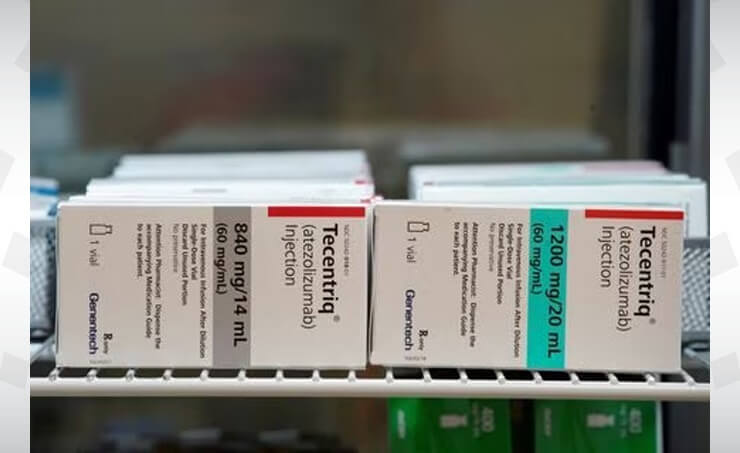Breaking new ground in healthcare, England’s publicly funded National Health Service (NHS) is poised to lead the globe in administering a groundbreaking cancer treatment injection that could revolutionize patient care. This development has the potential to dramatically slash treatment durations by as much as seventy-five percent.
Following the green light from the Medicines and Healthcare products Regulatory Agency (MHRA), NHS England revealed that a sizeable group of eligible patients is set to receive an “under the skin” injection of the immunotherapy drug atezolizumab. This move is anticipated to not only optimize the time allocated to cancer care teams but also streamline the treatment process for patients, according to a Reuters report.
Dr. Alexander Martin, a consultant oncologist at West Suffolk NHS Foundation Trust, shared, “This approval will not only allow us to deliver convenient and faster care for our patients, but will enable our teams to treat more patients throughout the day.”
Typically administered intravenously via a drip directly into patients’ veins, the drug atezolizumab, also known as Tecentriq, is renowned for its immunotherapy properties, empowering the patient’s immune system to identify and eliminate cancer cells. Traditional intravenous administration could span from 30 minutes to even an hour, presenting challenges in vein accessibility for some patients.
Marius Scholtz, the Medical Director at Roche Products Limited, stated, “It takes approximately seven minutes, compared with 30 to 60 minutes for the current method of an intravenous infusion.”
Developed by Genentech, a subsidiary of Roche, atezolizumab is already a go-to immunotherapy solution offered to NHS patients grappling with various cancers, such as lung, breast, liver, and bladder cancers.
The transition to this innovative injection is expected to impact a significant portion of the roughly 3,600 patients initiating atezolizumab treatment annually in England. Notably, patients undergoing intravenous chemotherapy alongside atezolizumab might continue with the conventional transfusion method.
This pioneering approach underscores NHS England’s commitment to advancing patient-centric and time-efficient cancer care.















